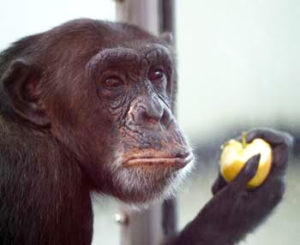 I’m never surprised anymore at the looks I get from many Christians when I bring up the topic of the theory of evolution.
I’m never surprised anymore at the looks I get from many Christians when I bring up the topic of the theory of evolution.
Malcolm Muggeridge, a well-known British journalist, Christian and philosopher wrote:
I myself am convinced that the theory of evolution, especially the extent to which it’s been applied, will be one of the great jokes in the history books of the future. Posterity will marvel that so very flimsy and dubious an hypothesis could be accepted with the incredible credulity that it has.
If you ask a professing believer in Christ why they are a Christian they most often will recite the facts, as they believe them [and I don’t doubt they do] , that “I have accepted I am a sinner, that Jesus died for my sins, I have asked His forgiveness and He is now my Savior”.
That’s where the problem comes: If I do believe this, can I accept the theory of evolution and the story of creation together? The answer is no. They are mutually exclusive.
If everything can be satisfied by believing that I am a sinner, that Jesus died for my sins and because of my belief and repentance based on that belief, I am now secure and guaranteed eternal life with Him, then I have to ask, “Can an amoeba sin?”, “Can a fish sin?”, “Can a monkey sin?”. After all by the theory of evolution’s standard they are our ancestors and if we evolved from their sort there has to be a common morality (see Rom. 1:25). I don’t think so.
As humans we have all sinned and that sin nature literally began when Adam and Eve chose, of their free will, to eat of the Tree of the Knowledge of Good and Evil. It was a distinct singular point in time not accounted for over thousands or millions of years.
We all fall short of the Glory of God (Romans 3:23). But if we believe in evolution, even theistic evolution, you have to ask yourself, “When did sin start?” Everything has a beginning. Or is sin evolutionary in nature? Are we worse in our sin today than a thousand years ago? Are we less sinful? Well that’s the questioning that belief in evolution leads to: Rationalization and relativity, the preeminent philosophical snag we are dealing with in the church today.
The world is broken. We are all sinners because of the one point in time when Adam and Eve chose poorly. However we have hope in Jesus based one other singular point time, His death one the cross followed by another singular point in time, His resurrection.
For the death that He died, He died to sin once for all; but the life that He lives, He lives to God. Even so consider yourselves to be dead to sin, but alive to God in Christ Jesus. (Romans 6:10-11 NASB)
Some argue that the “apple” is allegorical, But as someone once said, “The trouble isn’t with the apple in the tree but the pair on the ground”.
